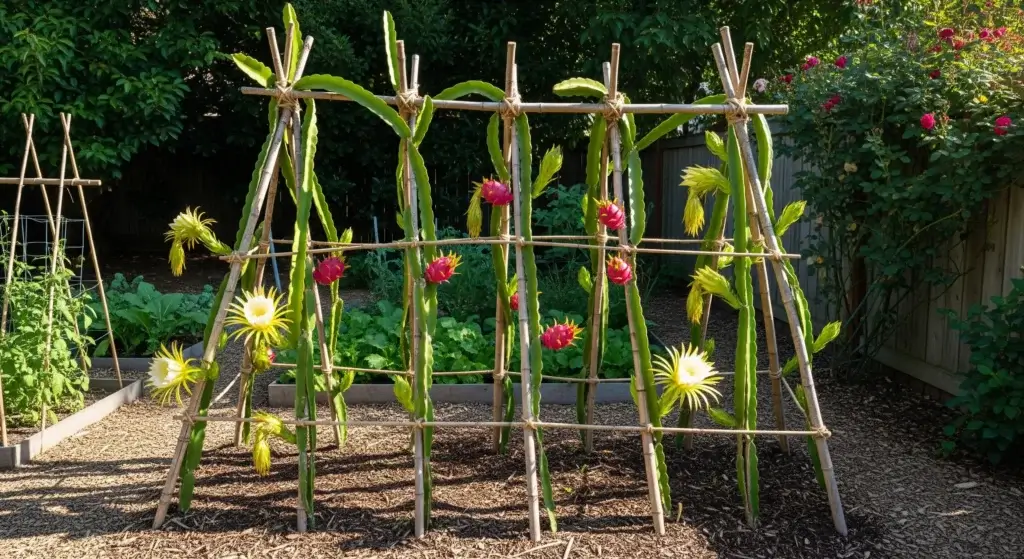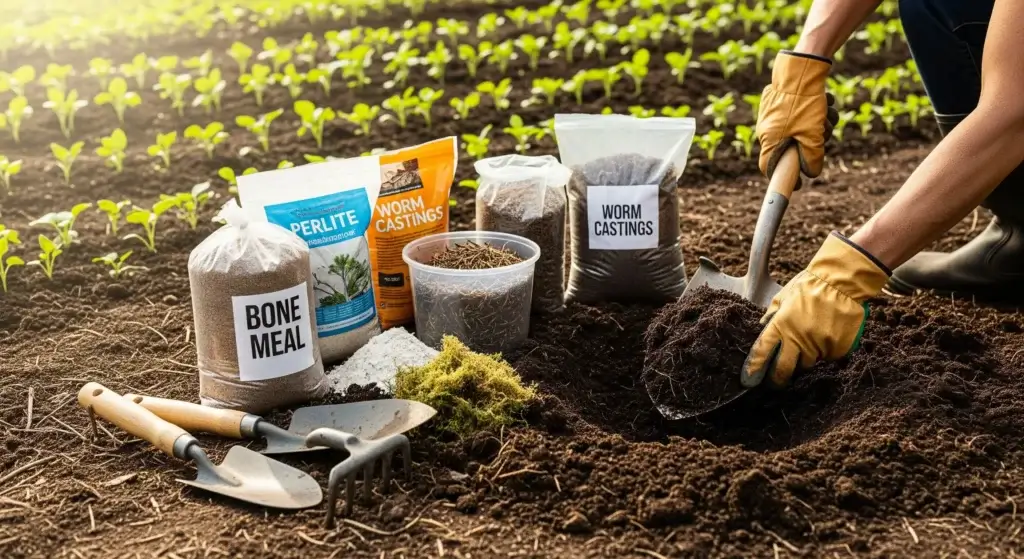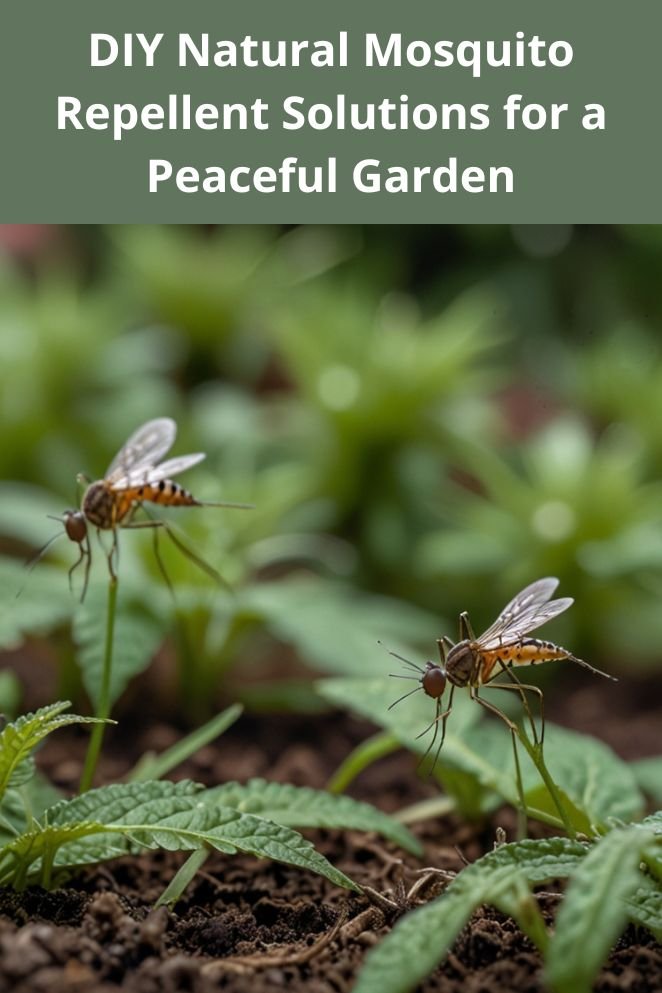
Mosquitoes can really put a damper on our outdoor enjoyment, especially when we’re trying to relax in our gardens during the warmer seasons.
While commercial repellents can do the trick, some folks may prefer more natural options, especially if they’re concerned about harsh chemicals.
In this article, we’ll dive into the realm of natural mosquito repellents, exploring DIY recipes that harness the power of plants and essential oils to keep those pesky insects away.
Natural Repellent Ingredients
When it comes to natural mosquito repellents, there are several plants and essential oils that have been shown to be effective.
Here are some of the most powerful options:
- Read also: DIY Solution: Homemade Plant Insect Spray for a Healthy Garden
- Read also: Natural Pest Control Methods for Your Vegetable Garden
Plants with powerful scents
- Citronella: Known for its strong citrus scent, citronella is a popular choice for natural mosquito repellents. It can be used in its essential oil form or as a plant material.
- Lavender: Lavender oil is a well-known natural insect repellent, and its calming scent can also help soothe itchy bites.
- Lemongrass: Lemongrass oil has a strong citrus scent that mosquitoes find unappealing. It can be used in its essential oil form or as a plant material.
- Rosemary: Rosemary oil has a strong, pungent scent that mosquitoes dislike. It can be used in its essential oil form or as a plant material.
- Peppermint: Peppermint oil has a strong, cooling scent that mosquitoes find unappealing. It can be used in its essential oil form or as a plant material.
- Catnip: Catnip oil has a strong, pungent scent that mosquitoes dislike. It can be used in its essential oil form or as a plant material.
- Basil: Basil oil has a sweet, herbaceous scent that mosquitoes find unappealing. It can be used in its essential oil form or as a plant material.
- Lemon balm: Lemon balm oil has a light, citrusy scent that mosquitoes dislike. It can be used in its essential oil form or as a plant material.
- Marigold: Marigold oil has a strong, pungent scent that mosquitoes dislike. It can be used in its essential oil form or as a plant material.
Essential oils
- Eucalyptus: Eucalyptus oil has a strong, pungent scent that mosquitoes dislike. However, it is not recommended for young children or pets due to its potential toxicity.
- Tea tree oil: Tea tree oil has a strong, pungent scent that mosquitoes dislike. It can be used in its essential oil form or as a plant material.
- Citronella oil: Citronella oil has a strong, citrusy scent that mosquitoes find unappealing. It can be used in its essential oil form or as a plant material.
- Lavender oil: Lavender oil has a calming, floral scent that mosquitoes dislike. It can be used in its essential oil form or as a plant material.
Carrier Oils
- Witch hazel: Witch hazel is a natural astringent that can help dilute essential oils and create a more effective repellent.
- Jojoba oil: Jojoba oil is a lightweight, non-greasy oil that can help dilute essential oils and create a more effective repellent.
- Coconut oil: Coconut oil is a popular choice for natural repellents due to its moisturizing properties and ability to help dilute essential oils.
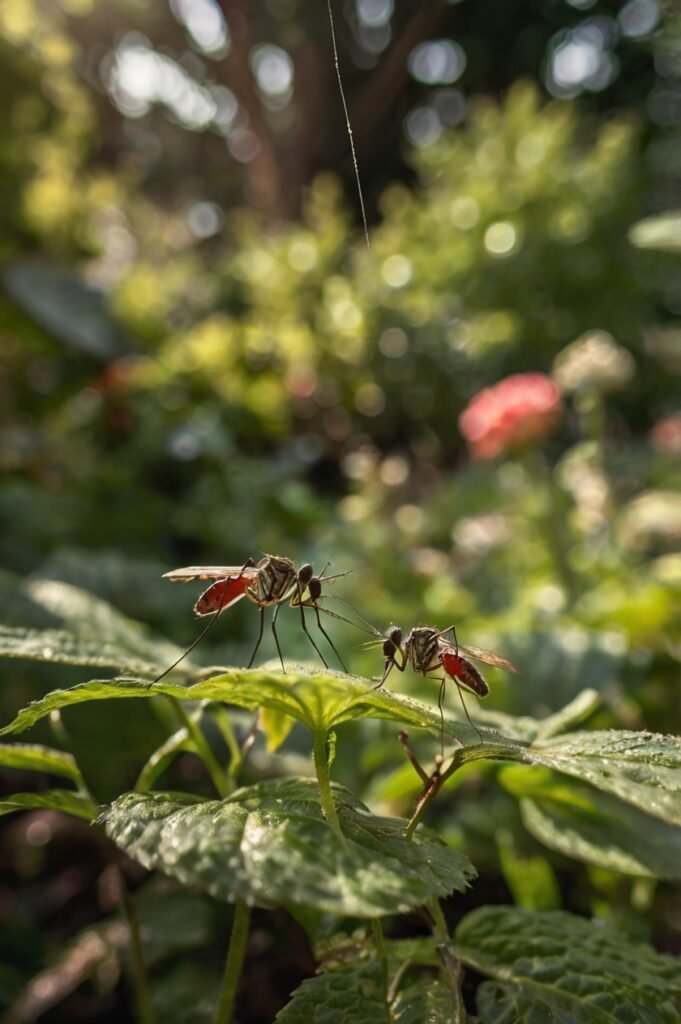
DIY Repellent Recipes
Let’s dive into the details of these two DIY repellent recipes to help you keep those pesky mosquitoes at bay:
Spray bottle repellent
Choose your ingredients
Start by selecting your favorite repellent ingredient.
You can choose from a variety of plants or essential oils known for their mosquito-repelling properties.
Mixing ingredients
Combine your chosen ingredient with water and, if using essential oils, a carrier oil.
For plant materials, you can steep fresh herbs in hot water, strain the mixture, and then dilute it further with water.
For essential oils, a typical ratio is 20-30 drops per cup of water, along with 1 tablespoon of carrier oil to help disperse the oils evenly.
Preparation
Mix the ingredients thoroughly in a spray bottle. Shake well before each use to ensure the ingredients are properly blended.
Application
Spray the repellent onto exposed skin or clothing before heading outdoors. Reapply as needed, especially after swimming or sweating.
Solid repellent
Combine ingredients
Start by combining shea butter or coconut oil with melted beeswax. These ingredients help create a solid base for your repellent.
Adding essential oils
Once the base mixture is combined, add a few drops of your chosen essential oil known for its mosquito-repelling properties. Lavender, citronella, and eucalyptus are popular choices.
Mixing and pouring
Stir the mixture well to ensure the essential oils are evenly distributed. Then, carefully pour the mixture into a container of your choice, such as a small tin or jar.
Solidification
Allow the mixture to cool and solidify at room temperature or in the refrigerator. Once solid, your repellent is ready to use.
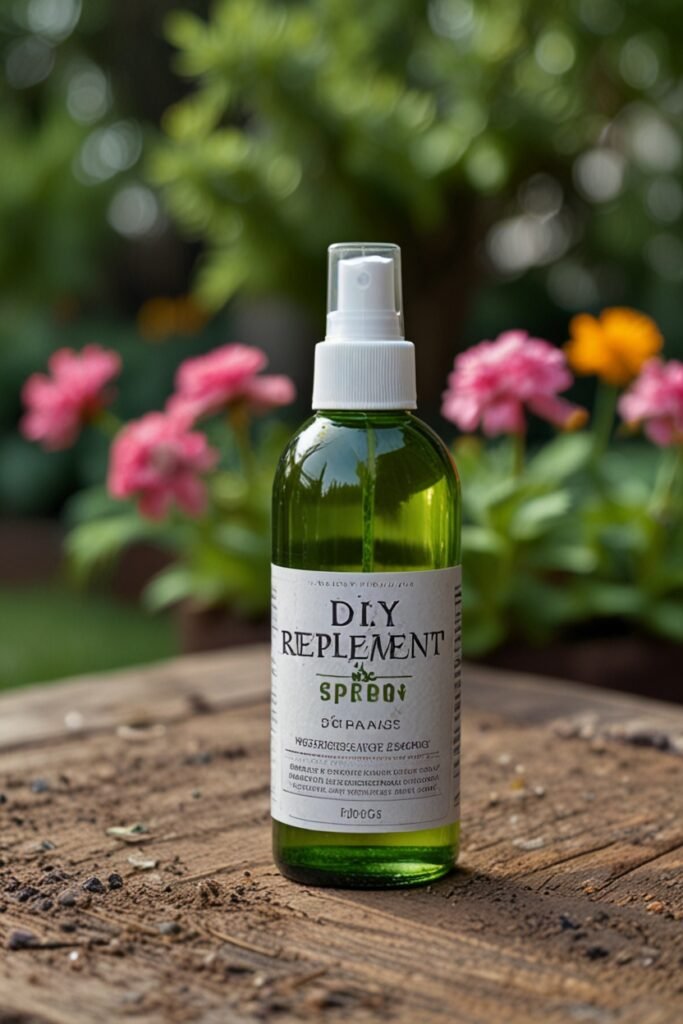
Application Tips
- Reapply every few hours, especially after sweating or swimming: Natural repellents typically need to be reapplied every few hours, especially after sweating or swimming.
- Focus on areas exposed to bites: Apply repellents to areas exposed to bites, such as ankles, arms, and neck.
- Consider planting repellent herbs around seating areas: Planting repellent herbs around seating areas can create a natural repellent zone.
- Citronella candles or torches can create a repellent zone: Citronella candles or torches can also create a repellent zone by releasing the scent of citronella into the air.
Safety Considerations
Safety is paramount when using natural repellents, especially when it comes to essential oils. Here are some important considerations to keep in mind:
Not all essential oils are safe for everyone
While essential oils are generally considered safe when used appropriately, it’s essential to recognize that not all oils are suitable for everyone.
Some oils, such as eucalyptus, can be toxic to young children or pets if ingested or applied in high concentrations.
Always perform a patch test on a small area of skin before applying any repellent liberally, especially if you have sensitive skin or are using it on children or pets.
Avoid certain oils for children and pets
Certain essential oils are best avoided when it comes to children and pets due to their potential toxicity.
Oils like eucalyptus, peppermint, and tea tree oil can be particularly problematic, especially for young children or animals with sensitive systems.
When using natural repellents around children or pets, opt for safer alternatives like lavender or citronella, and consult with a healthcare professional or veterinarian if you have concerns.
Keep repellents out of reach
To prevent accidental ingestion or exposure, always keep natural repellents out of reach of children and pets.
Store them in a secure location where curious little hands or paws can’t access them.
Additionally, ensure that containers are properly sealed to minimize the risk of spills or leaks.
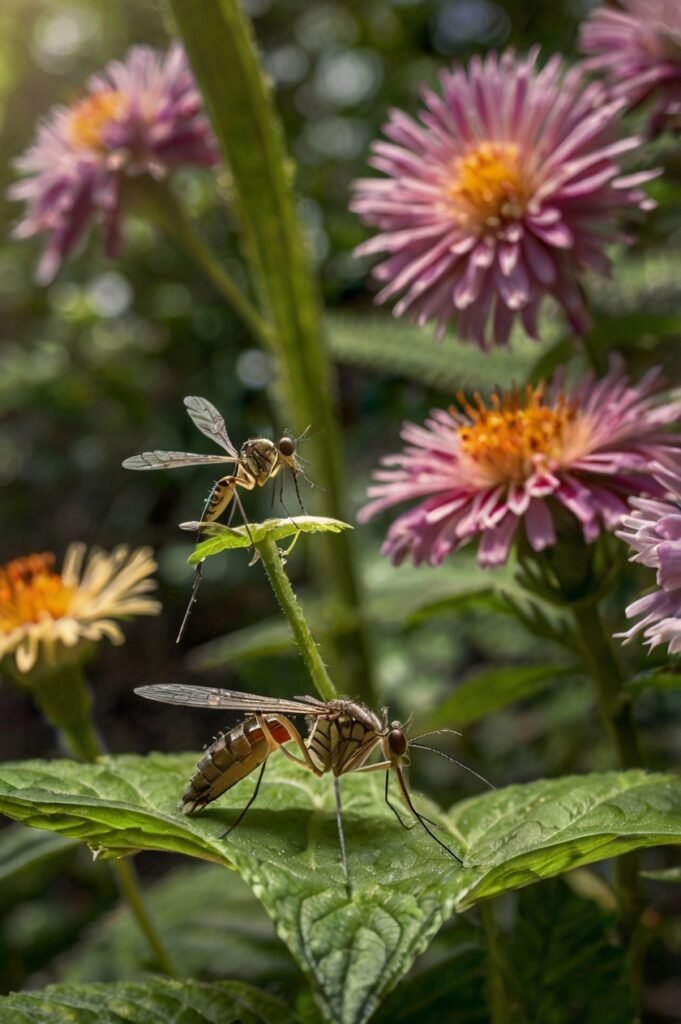
- Read also: Keeping Your Plants Safe: A DIY Guide to Spider Mite Spray
- Read also: Crafting Your Defense: Effective DIY Traps for Garden Pests
Conclusion
Utilizing natural mosquito repellents offers an effective and safe approach to ward off these bothersome insects.
Harnessing the power of plants and essential oils allows you to craft a repellent customized to your preferences and requirements.
It’s crucial to prioritize safety by adhering to guidelines and conducting patch tests on a small skin area before widespread application.

